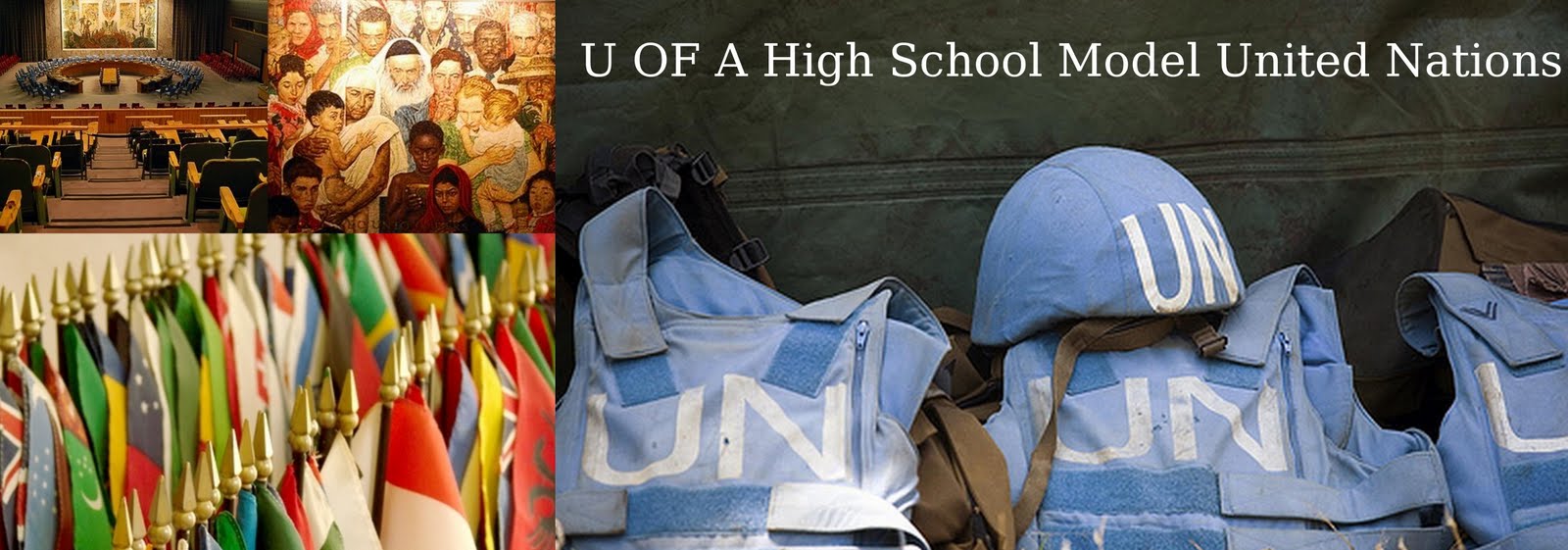Tomorrow is the big day and we are all excited to see you guys!
I have been reading through background papers all week and am pleased to say that you have given us some really quality stuff; from plain awesome, to funny, to witty- it will be difficult to make our award decisions.
One thing I have noticed as I have been going through them though, is that some of you know your nations mindset on the topics we will be discussing, but didn't focus as much on what possible solutions your country would prefer or refuse. Try thinking of a few ideas before debate starts up and it might make it a little bit easier for you :)
For those of you doing some last minute research try taking a look around these sites:
- CIA World Factbook: This website has statistics and general information on all the countries and is generally a good starting point- https://www.cia.gov/library/publications/the-world-factbook/
- The government website for your nation: This is where you are most likely to find specific policies that your nation has on topics, search around a little and you could get some golden information (if you don't already know what it is try Google-ing "government website
" and the site should pop up) - WikiLeaks: Well we all know what this site is. WikiLeaks could be a useful information source to find out government's 'real' policies, not just the ones that they post for everyone, including their enemies to see. It's set up just like Wikipedia so searching on it shouldn't be too difficult- http://www.wikileaks.ch/wiki/Main_Page
If you have any last minute questions I will be checking the email regularly tonight and a little bit in the morning as well so feel free to send in your questions (hsmun.unodc@gmail.com)
I hope that some of these suggestions might help you get ready for tomorrow, I can't wait to see all of you!
Lauren
P.S. For those first time HSMUN-ers coming out tomorrow here is a quick word of advice that I learned during my time as an HSMUN delegate: Once you know the basics of how your country views the topics and who their allies are don't be afraid to step out of your box and make decisions; Be confident in what you know, it is your job to represent your nation so stand up and make your voice heard! (it's more fun that way anyway XD ))





